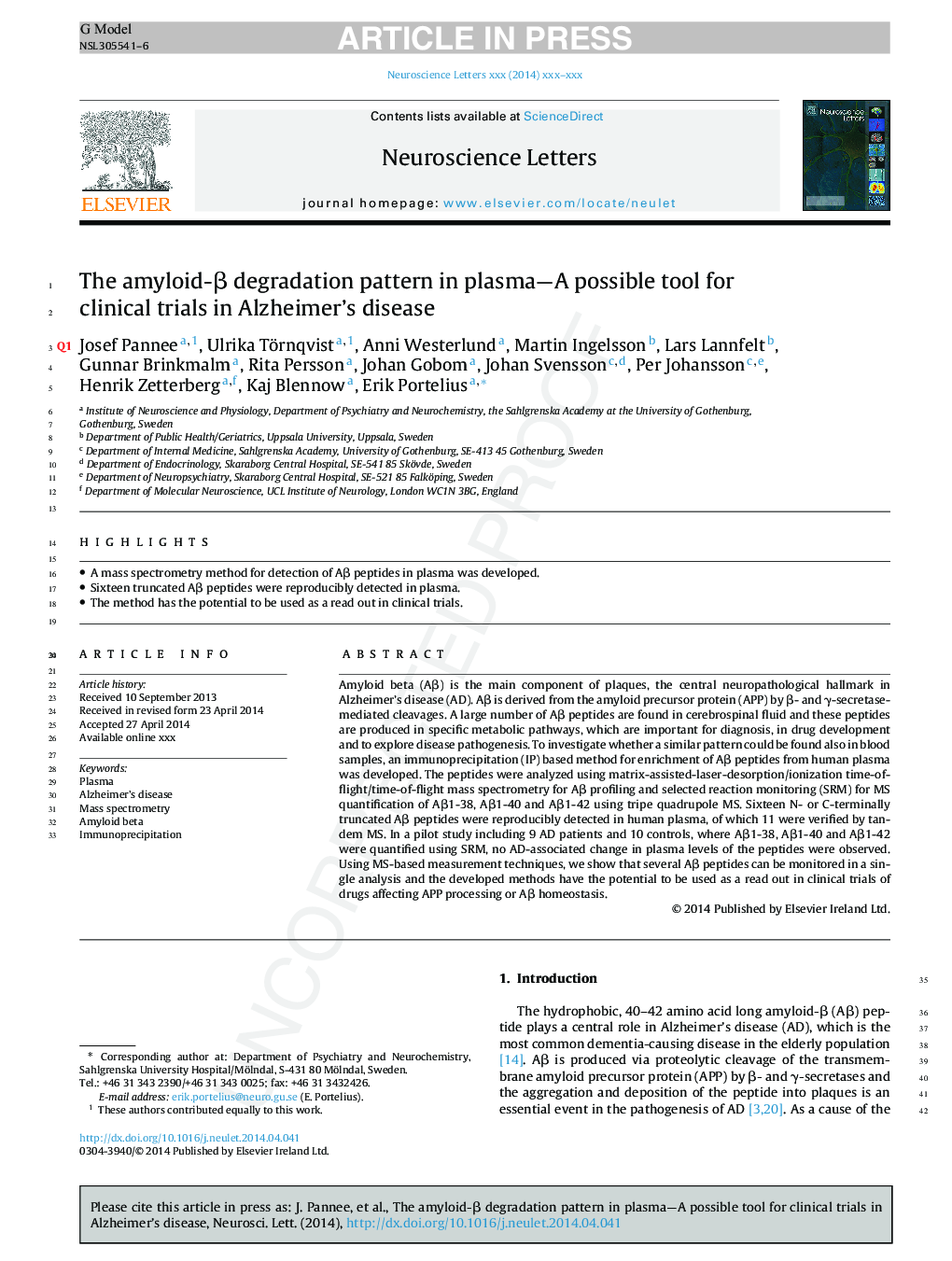| Article ID | Journal | Published Year | Pages | File Type |
|---|---|---|---|---|
| 6281951 | Neuroscience Letters | 2014 | 6 Pages |
Abstract
Amyloid beta (Aβ) is the main component of plaques, the central neuropathological hallmark in Alzheimer's disease (AD). Aβ is derived from the amyloid precursor protein (APP) by β- and γ-secretase-mediated cleavages. A large number of Aβ peptides are found in cerebrospinal fluid and these peptides are produced in specific metabolic pathways, which are important for diagnosis, in drug development and to explore disease pathogenesis. To investigate whether a similar pattern could be found also in blood samples, an immunoprecipitation (IP) based method for enrichment of Aβ peptides from human plasma was developed. The peptides were analyzed using matrix-assisted-laser-desorption/ionization time-of-flight/time-of-flight mass spectrometry for Aβ profiling and selected reaction monitoring (SRM) for MS quantification of Aβ1-38, Aβ1-40 and Aβ1-42 using tripe quadrupole MS. Sixteen N- or C-terminally truncated Aβ peptides were reproducibly detected in human plasma, of which 11 were verified by tandem MS. In a pilot study including 9 AD patients and 10 controls, where Aβ1-38, Aβ1-40 and Aβ1-42 were quantified using SRM, no AD-associated change in plasma levels of the peptides were observed. Using MS-based measurement techniques, we show that several Aβ peptides can be monitored in a single analysis and the developed methods have the potential to be used as a read out in clinical trials of drugs affecting APP processing or Aβ homeostasis.
Related Topics
Life Sciences
Neuroscience
Neuroscience (General)
Authors
Josef Pannee, Ulrika Törnqvist, Anni Westerlund, Martin Ingelsson, Lars Lannfelt, Gunnar Brinkmalm, Rita Persson, Johan Gobom, Johan Svensson, Per Johansson, Henrik Zetterberg, Kaj Blennow, Erik Portelius,
